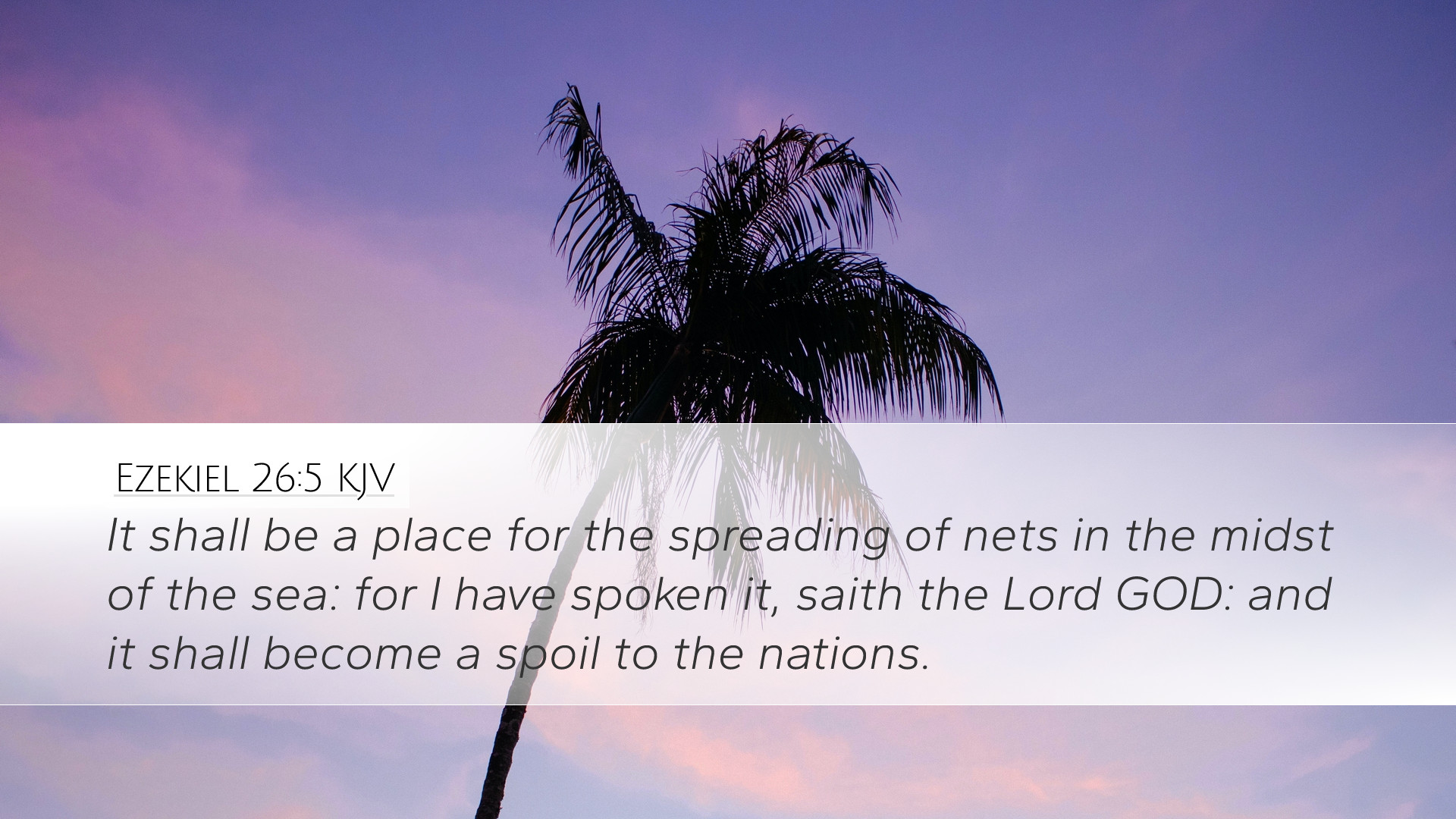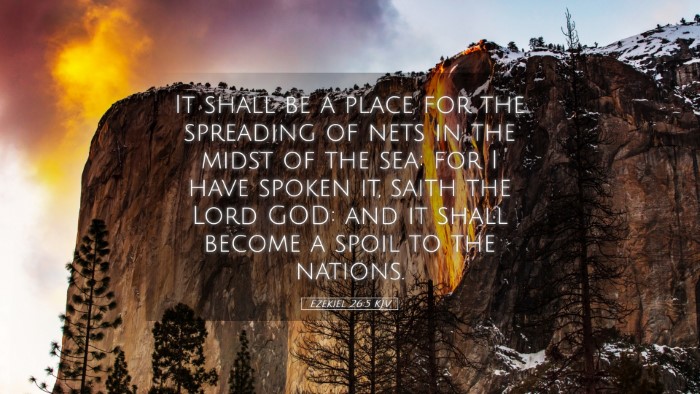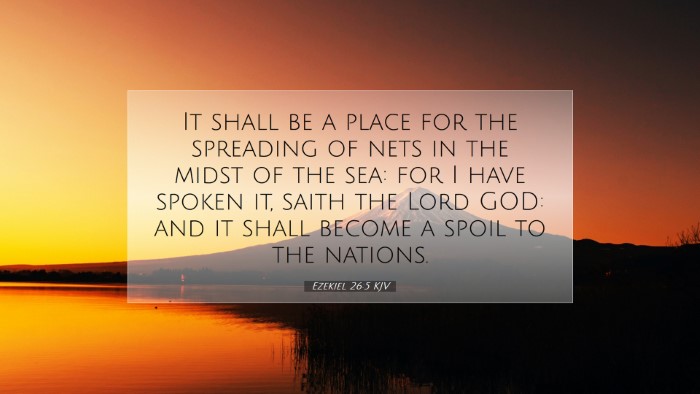Ezekiel 26:5 Commentary
Verse: Ezekiel 26:5 - "It shall be a place for the spreading of nets in the midst of the sea; for I have spoken it, saith the Lord God: and it shall become a spoil to the nations."
Introduction
This verse is part of a larger oracle against Tyre, a prominent Phoenician city known for its maritime prowess and commercial wealth. Ezekiel speaks of the impending judgment on Tyre, portraying its transformation from a powerful trading hub to a mere fishnet spreading on the seabed. This commentary synthesizes insights from various public domain sources, providing a deeper understanding for pastors, students, theologians, and Bible scholars.
Contextual Analysis
Ezekiel prophesies during a time of great turmoil for Israel and surrounding nations. The destruction of Tyre by Nebuchadnezzar, as foretold in Ezekiel's prophecies, serves as an important aspect of this chapter. The significance of Tyre's fall is underscored not only by its commercial collapse but also by the theological implications of God’s sovereignty over nations.
Theological Themes
- Divine Judgment: The destruction of Tyre illustrates God's judgment against pride and idolatry.
- Fulfillment of Prophecy: This verse reflects God's unerring word, with an assurance that what He speaks will come to pass.
- Subjugation of Nations: Tyre’s fate symbolizes the broader theme of nations being used as instruments of divine judgment.
Insights from Commentators
Matthew Henry
Matthew Henry notes that Ezekiel's prophecy vividly portrays Tyre's future state. He emphasizes the transformation from a bustling city to a place devoid of its former glory, signaling the comprehensive nature of God's judgment. He writes, "It shall be a place for the spreading of nets," illustrating that Tyre will lose not only its economic stature but also its very identity. The imagery of nets speaks to the utter desolation awaiting the city, transforming from a thriving port into an abandoned wasteland.
Albert Barnes
Albert Barnes elaborates on the metaphor of the "spreading of nets." He connects this imagery to the concept of fishermen thronging to a fruitful area at sea, showcasing that what was once a center of commerce will now serve a much humbler function. Barnes points out that the fulfillment of this prophecy can be seen in the historical context following Nebuchadnezzar's siege. The loss experienced by Tyre serves as a warning about complacency in moral and spiritual matters.
Adam Clarke
Adam Clarke provides additional depth by discussing the broader implications of Tyre's downfall. He highlights that Tyre, once renowned for its strength and opulence, is reduced to a 'spoil' for the nations. Clarke points out that this reflects the overarching narrative of Scripture concerning God's covenant people and their adversaries: those who oppose God will ultimately face destruction. He also notes the significance of Tyre being referenced as dried up, affirming the loss of its influence and wealth.
Practical Applications
For pastors and theologians, Ezekiel 26:5 serves as a poignant reminder of God’s sovereignty over earthly powers. It encourages a deep reflection on the transient nature of human achievement and the importance of aligning one’s priorities with God’s will.
- Reflection on Human Pride: The downfall of Tyre invites individuals to examine their own lives for any signs of pride or self-sufficiency.
- Hope in God’s Sovereignty: Believers can find comfort in knowing that despite the appearances of worldly authority, God remains in control.
- Evangelistic Urgency: The fate of Tyre serves as a call to urgency in sharing the Gospel, as many remain unaware of the impending judgment against sin and rebellion.
Conclusion
Ezekiel 26:5 encapsulates profound truths about divine judgment, the fate of nations, and the transient nature of power. Through the insights of various commentators, we glean not only the historical significance but also the eternal implications for believers today. The fall of Tyre stands as a sobering reminder of the consequences of living apart from God’s purposes.


